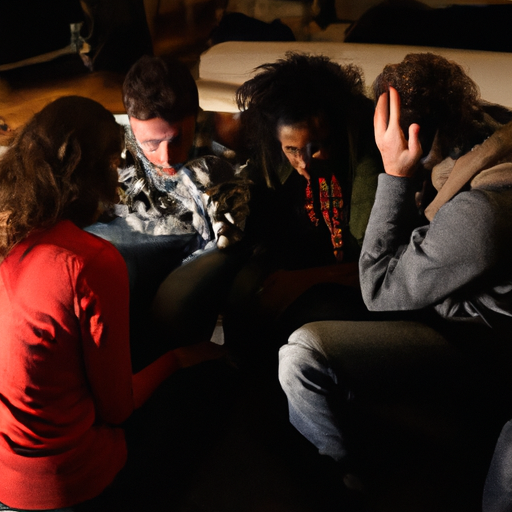The Impact of Self-Help Groups on the Canadian Opioid Crisis
The ongoing opioid crisis in Canada reveals a stark reality of escalating misuse of opioids, ranging from illegal substances like heroin to prescription medicines like morphine. The devastating impact of this crisis has gripped diverse strata of Canadian society, manifesting in escalating overdose deaths, increased homelessness, and burgeoning crime rates.
The Impact of Self-Help Groups on Successful Substance Use Treatment Completion offers pivotal insight into mitigating this crisis. Importantly, it seeks to shed light on the role and efficacy of interventions like self-help groups in tackling opioid misuse.
Understanding the Scale of the Opioid Crisis
The opioid crisis in Canada is getting progressively worse. Illicit drug-overdose deaths increased from 2,000 in 2016 to over 4,000 in 2017, and over 3,000 lives were lost in the first nine months of 2020 alone. These statistics reflect the dire necessity for effective harm-reduction strategies and policies, including the potential role of self-help groups in supporting individuals struggling with opioid addiction.
Profound Effects of the Opioid Crisis
The opioid crisis is not just about startling death tolls but touches various facets of society. Some of the impacts include:
- Health concerns: These arise from overdoses and the accompanying strain on the healthcare system.
- Social effects: There is an incontrovertible link between opioid addiction and homelessness, and the opioid crisis has exacerbated this issue.
- Criminal activities: The opioid crisis has led to a surge in criminal activities, including robbery and violence, as people struggling with addiction may resort to unlawful means to obtain opioids.
Adopting a Collaborative Approach: Self-Help Groups and Treatment Completion
The study found a positive correlation between participation in self-help groups and the likelihood of successful substance use treatment completion. Past research indicates that greater self-help group attendance often complements formal treatments, enhancing individuals’ resilience, promoting accountability, and providing supportive community networks.
Key Points
To fully appreciate the potential of self-help groups in addressing the opioid crisis, we must consider the following elements:
- Reducing Substance Misuse: Regular participation in self-help groups has been associated with sustained reductions in substance misuse, thus lowering the risks of overdosing and other health-related hazards.
- Inclusive Support: The non-discriminatory nature of most self-help groups fosters a sense of belonging, providing meaningful social relationships that can indirectly help reduce homelessness driven by opioid misuse.
- Supplementing Formal Interventions: Self-help groups are a cost-effective supplementary approach to formal treatments, facilitating patients’ trajectories towards recovery and sobriety. These groups can bolster access to naloxone, a medicine vital in treating opioid overdoses.
Legal Strategies: The Canadian Opioid Abatement Class Action
The collaborative approach, involving both formal treatments and self-help groups, forms part of a broader legal strategy to address the opioid crisis. An example is the Canadian opioid abatement class action, targeting manufacturers and distributors of opioids for their alleged roles in propagating the crisis. While these lawsuits continue, self-help groups offer an additional layer of community-level protection against the crisis.
In conclusion, the opioid crisis has thrust Canada into uncharted territory in public health. However, the research underscores the potential of leveraging self-help groups as part of a comprehensive response alongside existing interventions such as naloxone distribution and formal treatments. These groups help foster a sense of community, reduce addiction-related stigma, promote healthy habits, and ultimately, save lives.
Remember, addiction does not discriminate, and neither should it be a life sentence. All strategies, from legislative to community initiatives, must reiterate the underlying ethos of care, offering those affected a lifeline towards recovery and social reintegration. The potential of self-help groups in bringing this change marks a beacon of hope amid the encompassing darkness of the opioid crisis.
